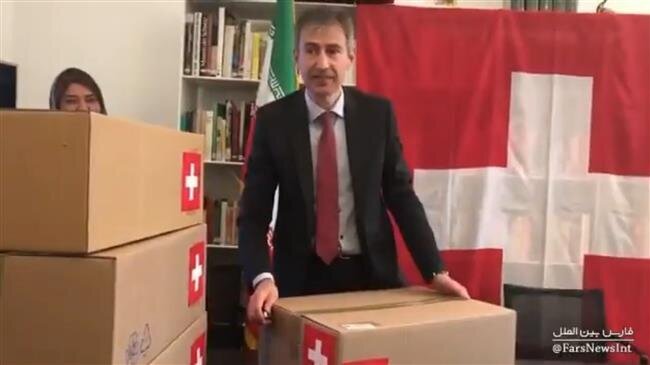Iran receives medicine under Swiss financial mechanism

TEHRAN – Some 180,000 packages of medicine needed for cancer patients and transplant operations entered Iran on Sunday following the implementation of Swiss payment mechanism.
Swiss Ambassador to Tehran Markus Leitner said at a news conference on Sunday at the embassy in Tehran that the new humanitarian channel would be operational within the next two to three weeks.
He added that pharmaceuticals, food and medical equipment were always exempted from U.S. sanctions. However, the sanctions were re-imposed on Iran in 2018, so, financial institutions - not just in Switzerland - were reluctant to trade with Iran, IRNA news agency reported.
Last week, three payments were made through the Geneva-based BCP bank through trial operations, he stated, explaining, the deals included the supply of different medicines from a Swiss pharmaceutical company, valued at around €2.3 million.
Today, 180,000 packages of medicines needed for organ transplant patients were imported to the country, he added.
Although food and medicine were claimed to be exempted from the U.S. sanctions, financial and banking sanctions have limited the life-saving medicine trade which harshly targeted the patients suffering from rare diseases.
Moreover, fears of falling afoul of Washington have restricted exports to Iran.
Exemptions for humanitarian trade (such as food, medicine, and medical equipment) have not been effective in protecting Iranian patients from access to imported medicine, such as the bandages used for patients suffering Epidermolysis Bullosa (EB), a rare genetic disease that causes painful blistering of the skin.
With the return of sanctions, over a year (May 2018-May 2019), 15 patients covered by EB Health House lost their lives, including Ava, a two-year-old girl in Ahvaz city, who died of infection and lack of skincare.
Companies exclusively producing medicine for Mucopolysaccharidosis (MPS) patients, such as BioMarin Pharmaceutical Inc. of the U.S. and a South Korean company, have refused to export these drugs to Iran, threatening the lives of 335 patients in Iran.
FB/MG
Leave a Comment